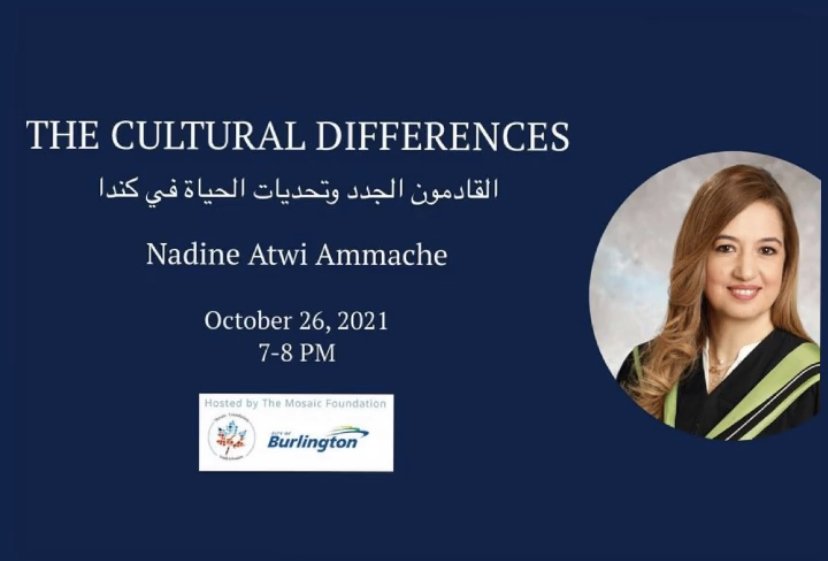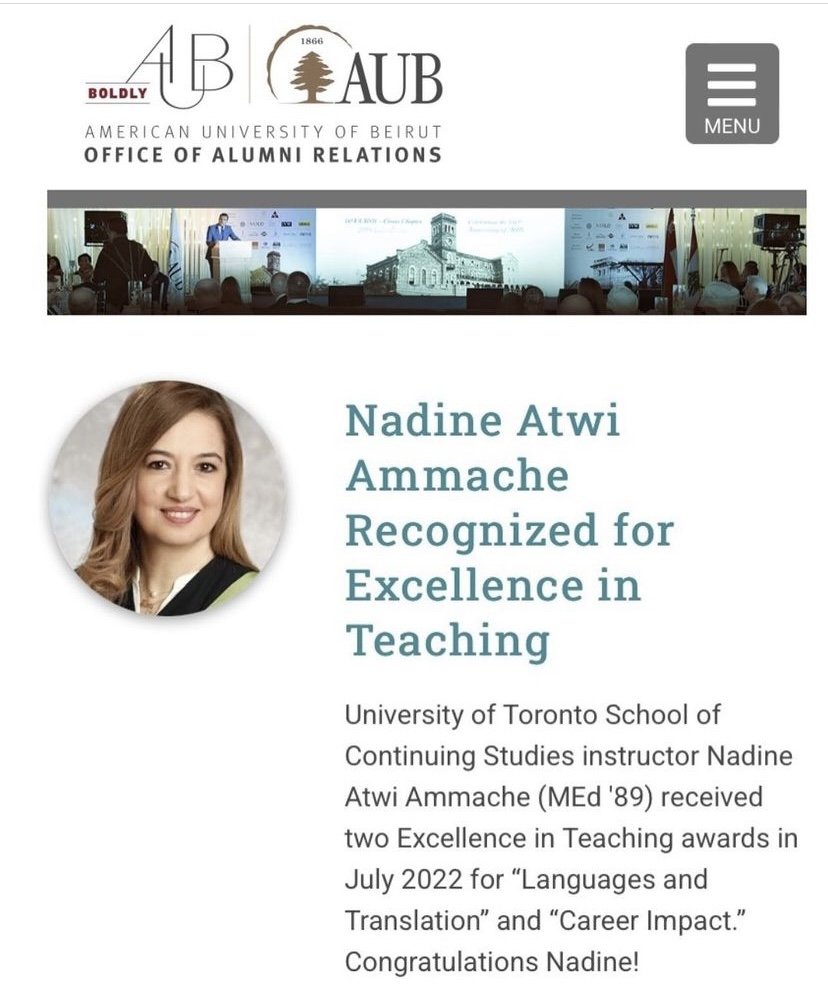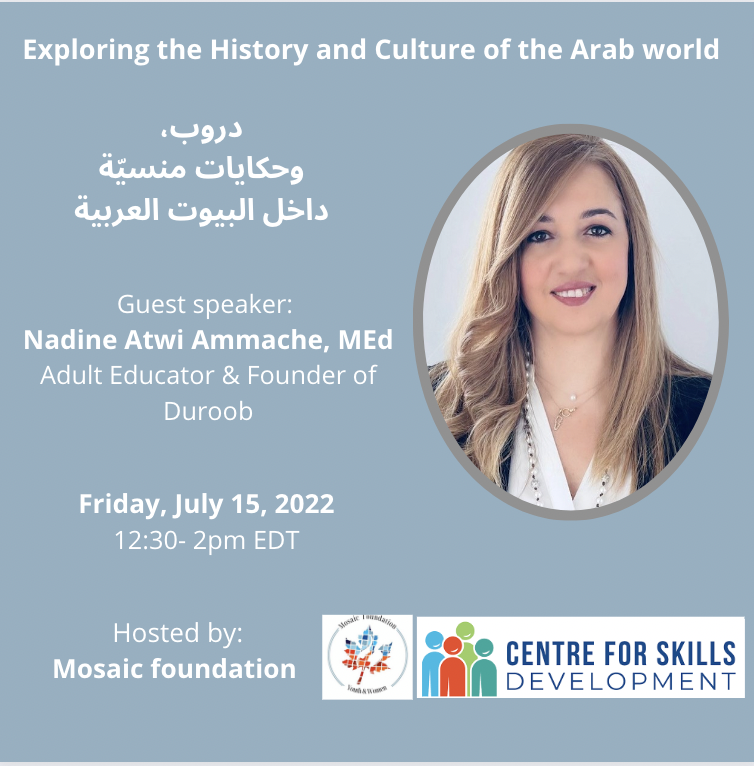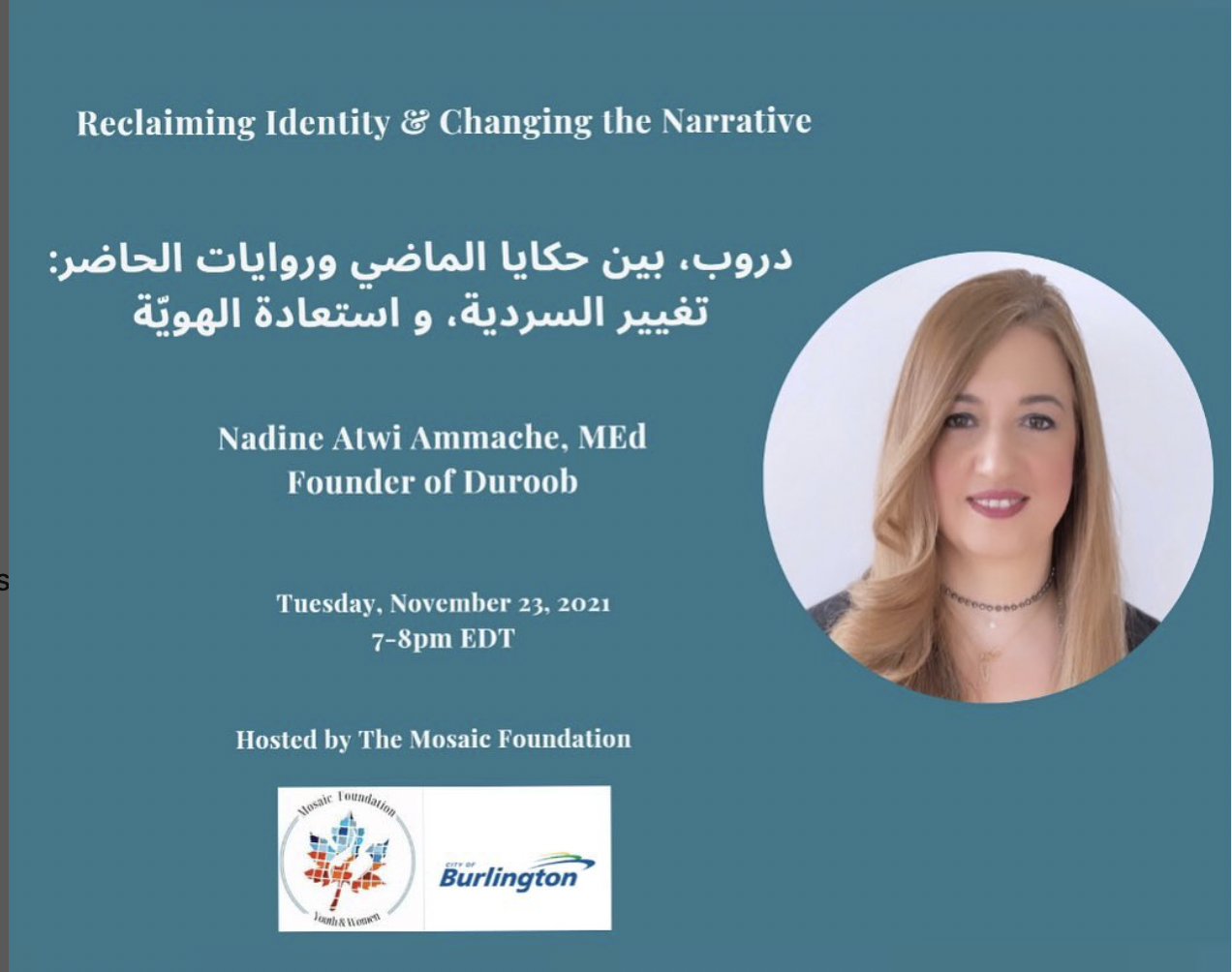
Speaking
In my talks, I re-examine the social and political history of the Middle East, in an attempt to reclaim people’s stories and disrupt the normalized stereotypical narrative about “Arabs” and “Muslims” as violent and uncivilized. Terrorist events, civil wars and refugee crisis, have further entrenched such depictions, unleashing an unprecedented rise of Xenophobia and Islamophobia in the West.
Scrutinizing Arab and Muslim reality thus becomes a critical endeavor specifically in this era, where social and political advocacy becomes a must to enact change and raise awareness.
These lectures aim to challenge the narrative, initiate a dialogue, and advance a new image that will allow people to discover new perspectives through a more context-based analysis of what the life of Arabs and Muslims looks like.
Topics
Civil War
Teaching about civil war carries the burden of questioning how people can journey together. Civil wars can be best told through the stories and the lived experiences of the people.
How does the legacy of a civil war impact the lives of survivors?
How can History education be a transformative discipline that enables us to learn from the painful past, and forge an understanding of the present in order to build a more promising future?
Refugees
In 2015, the world was moved by the photo of a little boy in a red sweater, lying dead on the Turkish shore. Aylan El Kurdi was a Syrian refugee fleeing the violent war that ravaged his country. The tragic death of the 2 years old, who drowned with his mother and brother, shamed the whole world, especially countries that refused to grant refugees protection or asylum.
What does it mean to be a refugee?
What is untold in the stories of refugees?
Media Representation
Can Media be a vehicle for “narrative repair”?
Can the same online setting that provides space for stigma and stereotypes be used to resist and challenge domination?
How did certain representations emerge? Why do they continue to inform the popular culture?
How would self-representation and resistance help dismantle hegemonic images and pave the way for new beliefs?
Peacebuilding in Conflict Zones
While conflicts and wars continue to ravage different parts of the world, peacebuilding has been placed at the forefront of many studies and initiatives, most of which focus on education as the main vehicle towards the instauration of Positive Peace (Galtung, 1975).
Can education succeed in shaping the hearts and minds of those whose lives have been impacted by wars and conflicts?
How can education contribute to building sustainable peace and enhancing social cohesion?
What happens when education is used as a weapon of cultural repression or is manipulated to exacerbate the conflict?
Young Adulthood in the Arab World
Today, as the world is swept by terrorism and religious conflicts, fingers are always pointed at specific racialized groups who are portrayed as a threat to the world. Terrorists are typically Arab/Muslim young men who fit into the normalized stereotypical depiction of “Arabs” as violent and uncivilized. Such beliefs eclipse the many challenges that Arab youth encounter in times of war and revolution .
How do Arab young adults negotiate transformation in their societies? How do they resist? What tools do they use? What role do they play in such transformation?
War Trauma
While we may believe that survivors of war share the same traumatic experiences, the context and the resilience of the survivors create different experiences for different people.
To better understand the complexity of war trauma, it is paramount to scrutinize the survivors’ experience:
Who does this trauma impact and how ? What are the factors that instigate trauma (violence/ rape/ torture/ loss)? what triggers war Trauma?
How important is it to anchor our work with the survivors, in their cultural background, reality, and their own needs?
Previous talks, panels, and workshops
The refugee crisis in the Middle East
Rape as a weapon of war: the case of Abandoned children
Starvation, as a weapon of war
Storytelling: What does it mean to be a survivor of war?
Immigrants and refugees: A new life dictated by a different journey.
History Education in Lebanon: The silenced past
Migrant women and the new forms of Colonization
Poverty and the creation of precarity
Media and the Fast Fashion industry
Young Adulthood in the 21st century: The case of the Arab youth
The diaspora, the youth, and the Arabic language.
The Arabic language and the challenges of modern times
The Festival of Arabic Music and Arts: The Canadian Arabic Orchestra
Storytelling as an educational tool
What does it mean to be a survivor of war? (Hosted by York University)
Reclaiming identity and changing the narrative (Hosted by the American University of Beirut, University for Seniors)
The cultural differences, language barriers, and the lack of job opportunities: the challenges of a newcomer to Canada (Hosted by Mosaic foundation & The City of Burlington)
Media, Stereotypes and the Arab Identity (Hosted by Mosaic foundation & The City of Burlington)
Exploring the History and Culture of the Arab world: The Arab House (Hosted by Mosaic foundation and Centre for skills development)












